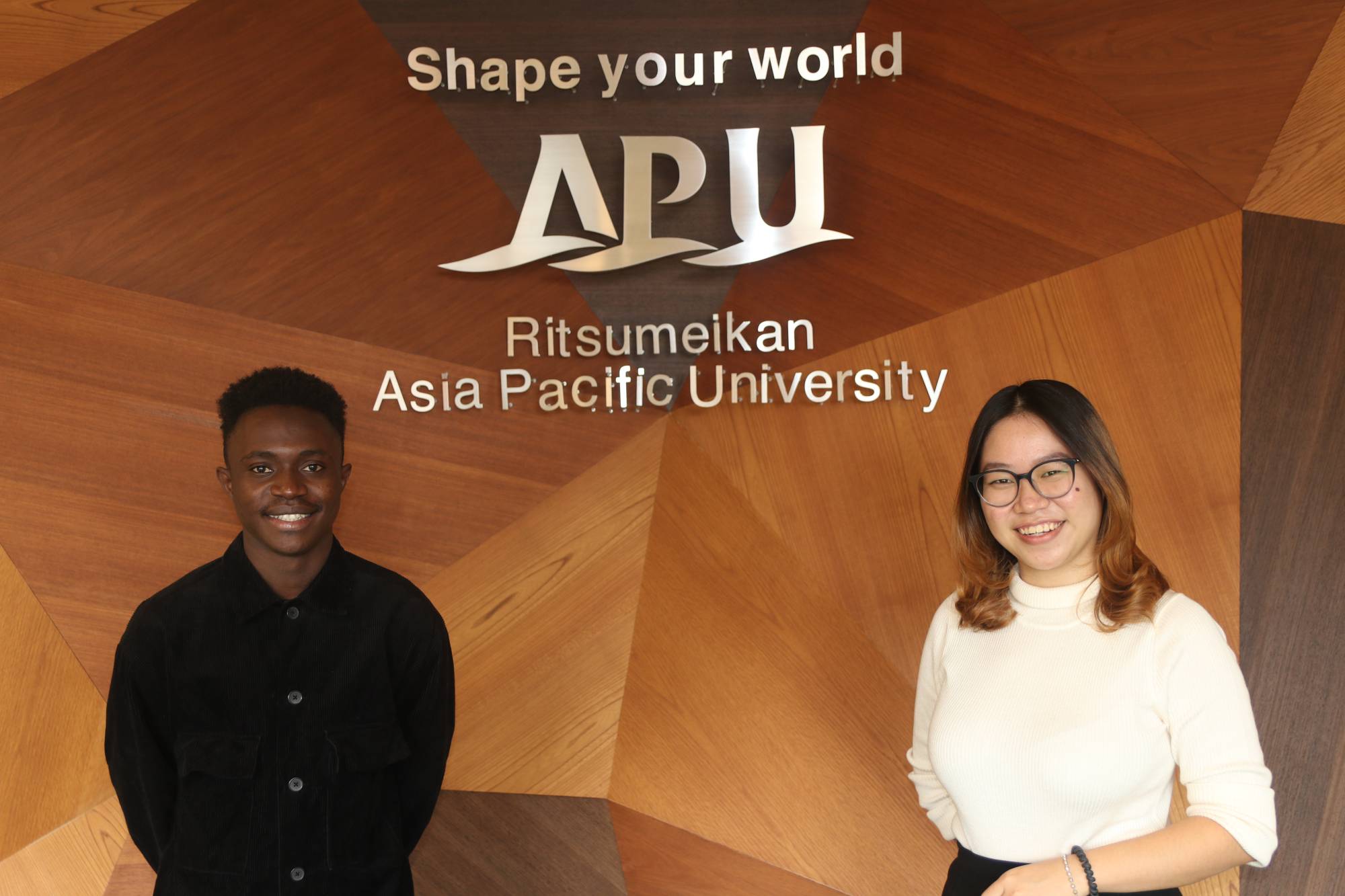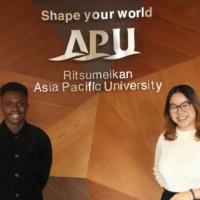Established in 2000, Ritsumeikan Asia Pacific University, popularly known as APU, is a higher education facility in Beppu, Oita Prefecture. It boasts an enrollment of over 5,500, split closely between domestic and international students, the latter of whom have come from more than 103 countries and regions as of fall 2022.
The goal of APU is to to help students to gain the power to change the world, which the university aims to achieve through classes focusing on multicultural and community exchanges, social sciences, responsible business practices and language learning, as well as sustainability. Most importantly, though, the university prepares its students for the challenges of the future through the challenges of the present by allowing them to set the courses of their own educational journeys.
“The school really lives up to APU’s official motto of ‘Shape your world,’” explained Sherly Budiman, an Indonesian student at APU’s College of International Management. “You get to choose the courses that you want to study. At APU, you start by learning basic things, such as introduction to economics, introduction to management and others, and then it kind of slowly builds up on your third year and fourth year of in-depth research on things that you would like to study further, like education in my case. You can also take seminar classes of five to 10 students. The idea for a seminar class is one professor supervises you based on their expertise, like entrepreneurship and digitalization or international management, which is what I’m taking. I’m really enjoying the opportunities and autonomy offered to students at APU.”
APU strives to make sure that, at the end of the day, students get the experiences and education that they need. But the university’s biggest advantage is probably the multicultural, diverse environment that it’s created, the benefits of which go far beyond learning about different cultures. Sahr Victor Kebbie, a student from Sierra Leone who is also enrolled at the College of International Management, explained: “One of my favorite classes was the Multicultural Workshop where Japanese and international students were in one class solving a problem as a team, working together trying to figure out how we can work together through cultural, ethnical and language barriers and problems.
“I just feel like they prepare you so much for when you go outside the university. It feels like a continuation of what you’ve learned. For example, if you have a business, you can learn how to get seed funding from investors. And you can also reach out to fellow international students and say: ‘This is what I’m doing. I need ideas. I need you to give me constructive feedback,’ and they will give you that multicultural perspective and support,” he said. “APU really gives you everything you need,” he added.
APU’s diversity is so extensive, it can feel a little intimidating at first, but it is a big benefit in the end.
“It is really easy to fall into your comfort zone, as in only hanging out with people from your own country or from a specific community,” Sherly, who goes by one name, said. “Getting out of your comfort zone is one of the things that I really felt that many people maybe would benefit from. Just immerse yourself in the diversity. Make use of that multicultural environment.” APU helps with that through events like Multicultural Weeks or the Multicultural Camp and others, designed to break the ice and help students tap into APU’s greatest asset.
There is also something to be said about the university’s internship programs. Unlike in the West, internships in Japan are actually quite rare and especially difficult to get for foreign residents. Not at APU, though, which has built an impressive network of contacts that allows its students to put their academic and language skills to real-world use. “I’m currently doing an internship with a local tourist information center here, and APU helps me to be successful by assigning a professor to support me,” Sherly explained.
Victor, who also goes by just his first name, has also made good use of the resources offered by the school: “I’ve done quite a lot of internships. I interned with TMH in Oita and currently I’m trying to get an internship at Mitsubishi Fuso. Also, thanks to APU, I’m additionally working with the office of Freetown’s mayor in Sierra Leone, which is really good because I’m actively helping my country and using what I’ve learned in the business and community sectors.”
Of course, to access that major benefit of Ritsumeikan Asia Pacific University, students need to open themselves up to new experiences, which comes from embracing the school’s multicultural environment. It might seem overwhelming in the beginning but, as Victor said: “If you fail, try to learn from that and keep going forward. Failing forward is the best thing that you can do as a student. The challenges are there.”
Find yours at APU.
For more information, visit: https://en.apu.ac.jp/home/
On application information, visit: https://admissions.apu.ac.jp/
Download the PDF of this article




